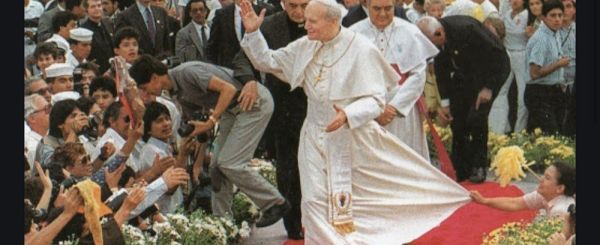5. One of the parables narrated by Jesus on the growth of the kingdom of God on earth makes us discover very realistically the character of struggle that the kingdom entails, due to the presence and action of an "enemy", who "sows tares (or weeds) in the midst of the wheat". Jesus says that when "the harvest flourished and bore fruit, behold, the weeds also appeared". The servants of the master of the field would like to pluck it out, but the master does not allow them to do so, "lest it happen that . uproot the wheat also. Let the one and the other grow together until the harvest, and at the time of harvest I will say to the reapers, 'Catch the darnel first and bind it in bundles to burn it; but the wheat you shall put in my barn' (Mt 13:29-30). This parable explains the coexistence and often the intertwining of good and evil in the world, in our lives, in the very history of the Church. Jesus teaches us to see things with Christian realism and to treat every problem with clarity of principles, but also with prudence and patience. This presupposes a transcendent vision of history, in which we know that everything belongs to God and every final outcome is the work of his Providence. However, the final fate - with an eschatological dimension - of the good and the bad is not hidden: it is symbolised by the harvesting of the wheat in the storehouse and the burning of the tares.
[Pope John Paul II, The Growth of the Kingdom,
http://www.clerus.org/clerus/dati/2000-06/14-2/GP9127.html]












